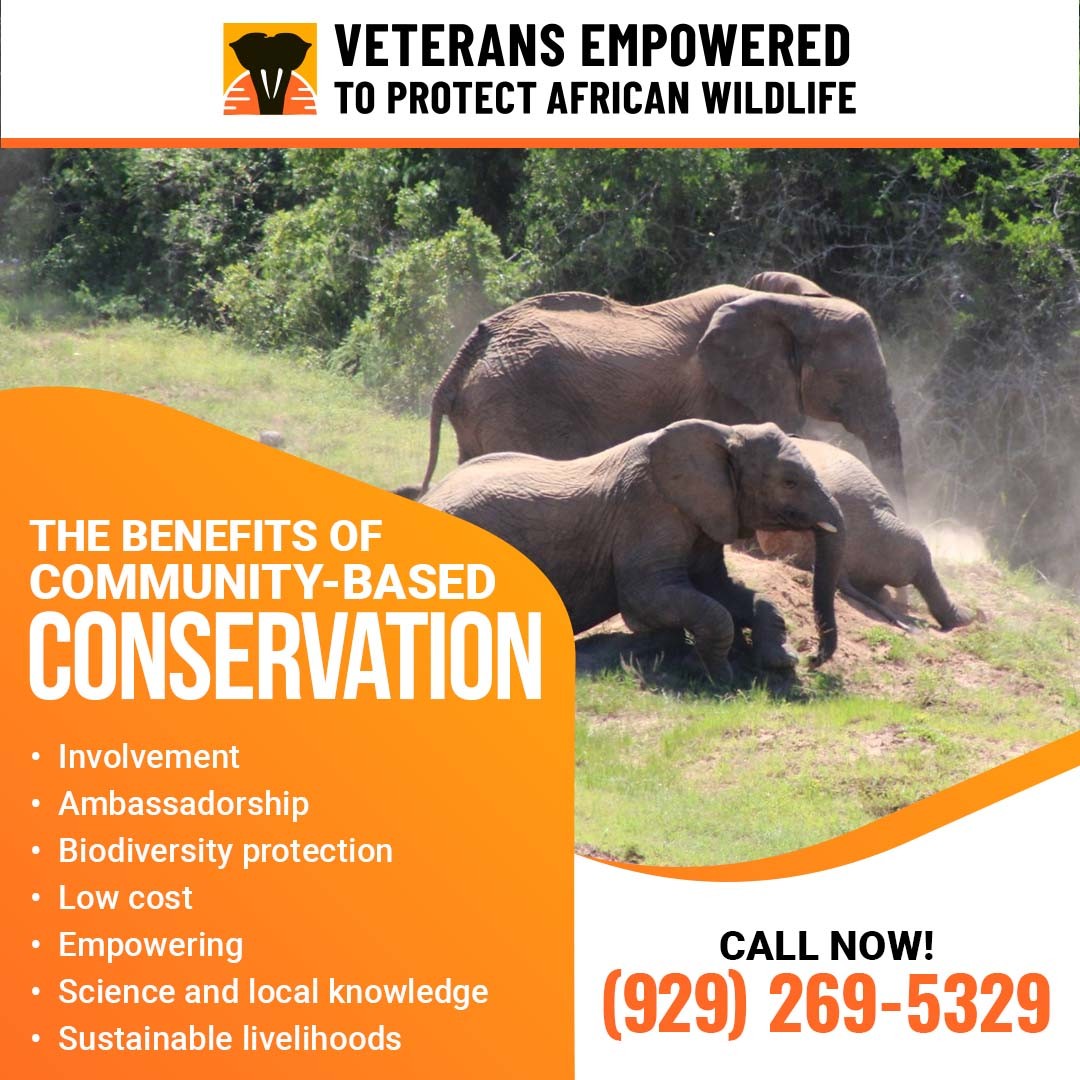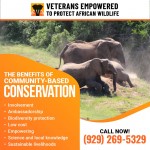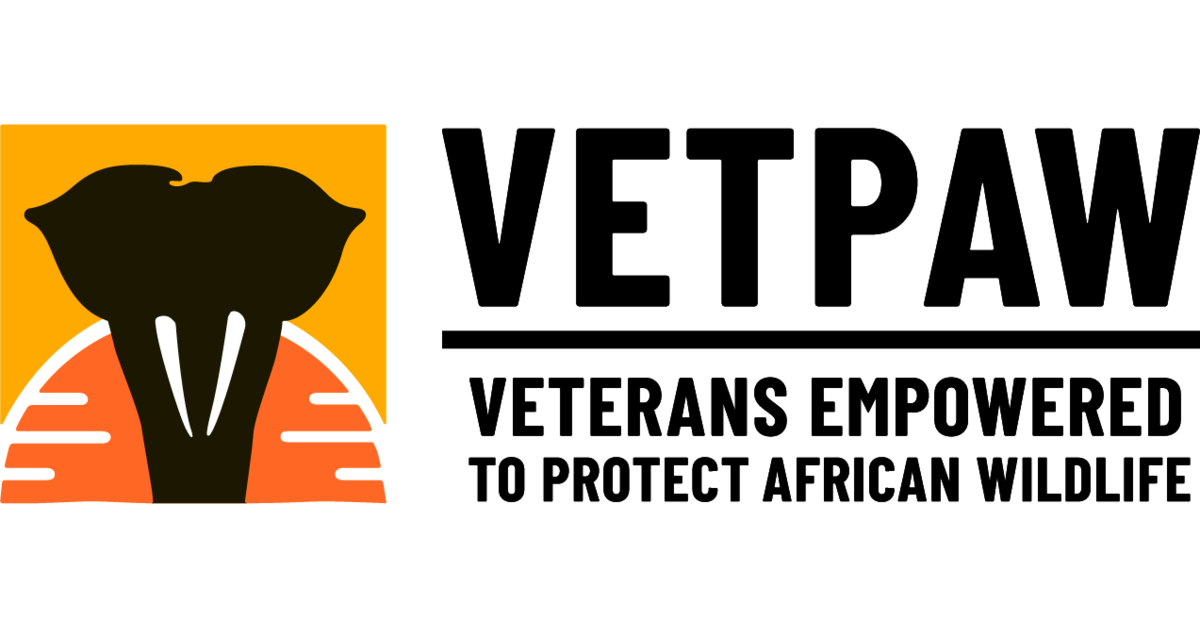Community-oriented approach to conservation - a win-win situation
Community-based conservation (CBC) refers to wildlife conservation efforts that involve rural people as an integral part of a wildlife conservation policy. This approach is more impactful than the exclusionary protectionist policies of the past. VETPAW reviews how community-oriented approaches to wildlife conservation are beneficial and how the VETPAW veterans follow this approach.

The community-based conservation approach usually has a strong economic rationale. It is typically based on the assumption that local community participation in wildlife management not only helps conserve wildlife but also assists in community welfare. Most community conservation activities are ultimately aimed at maintaining wildlife populations and simultaneously improving the socio-economic status of local communities in wildlife areas.
The benefits of community-based conservation
- Involvement: This approach engages local communities in resource planning and management wherein they can gain economically from wildlife utilization.
- Ambassadorship: The exclusionary protectionist policies of the past often alienated the rural population from the conservation efforts. The community-oriented approach, on the other hand, is an effective and alternative method that transforms the local people into active protectors of wildlife.
- Biodiversity protection: This form of conservation effort has been found to have maximum impact over the long term as it is flexible enough to be used in communities all across the world.
- Low cost: Engaging local communities in wildlife conservation is a low-cost approach.
- Empowering: When local communities are engaged in this effort, they feel valued for their contribution. Empowerment is the key to sustaining such associations.
- Science and local knowledge: When scientific and local knowledge comes together, they make for a powerful combination. The local communities have insight into the practicalities, priorities, and concerns of their people while science brings in the perspective that local communities can learn from. Together, they can give a massive boost to the conservation efforts.
- Sustainable livelihoods: The benefits of such methodology can be the creation of new, small, home-based businesses and sustainable tourism.
The process involves engaging the local communities from the very beginning by having direct and honest conversations. This helps assess the perspectives, concerns, needs, and values of the people. Creating awareness about the wildlife conservation plans and their impact on the lives of the people is crucial. When the community has a stake in the conservation of wildlife, the efforts by conservationists work.
As all the stakeholders come together and make a plan to balance the needs of the people with the needs of the local wildlife – community conservation succeeds.
VETPAW and local communities work together
Understanding that conservation efforts are incomplete and futile without the support of the local communities, the VETPAW veterans have been constantly engaged with the local people. Here’s how the team has taken up the community-based conservation approach in South Africa.
# The sustainability projects by VETPAW such as teaching crochet and bracelet making that the local communities have used to raise funds to support their people, especially during COVID-19. These projects have helped create reliable income for the people and taken them away from the illegal means of livelihood such as poaching and wildlife trafficking.
# The Operation Rhino Rise is a comprehensive effort by VETPAW to extensively increase the population of Black Rhino and other endangered wildlife to a realistic and sustainable number capable of continuous growth for generations to come.
With this campaign, VETPAW strengthened the protective ranger force with an upgraded skill-set; extended the veterans’ support to other threatened reserves by increasing the ranks of local rangers; offered state-of-the-art electronic monitoring and satellite-based analytics for the rangers, team members, and conservationists, and; partnered with local communities and imparted new trade skills to help them sustain their families.
# The VETPAW experience invites people from across the globe to help in the conservation efforts and experience first-hand the majesty of African wildlife and how it is in danger of extinction. It has created a source of livelihood for the locals and showcased to them the importance of protecting their natural resources.
Alone, organizations and governments cannot sustain the efforts effectively for too long. But with the support and choices of the locals, these endeavors have a higher success rate.

VETPAW - Veterans Empowered to Protect African Wildlife
Founded in 2013, VETPAW is a non-profit organization and a community of US war veterans dedicated to protecting African wildlife and training local African rangers in the war against poaching.


























